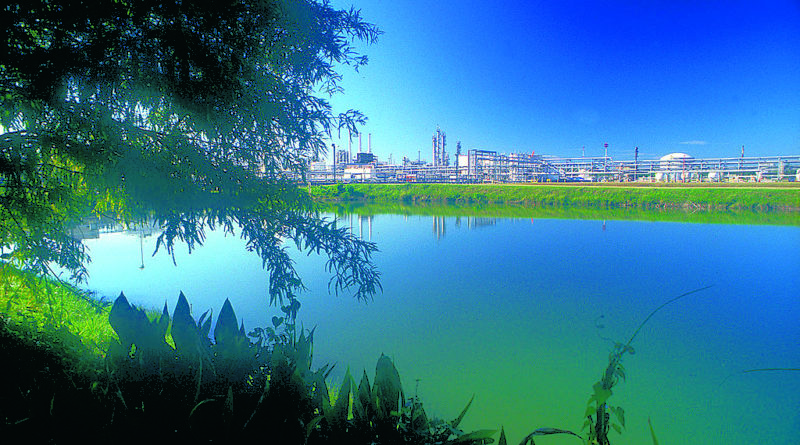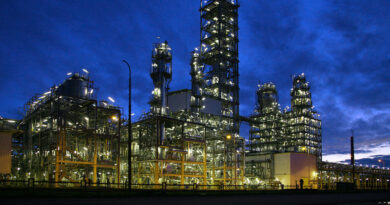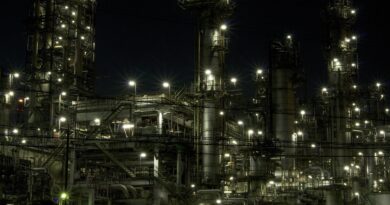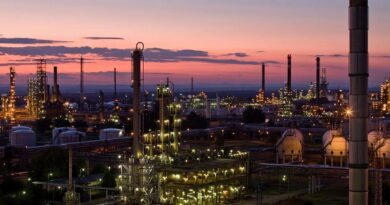Sasol is ramping up its production to full capacity
Sasol continues to make significant progress on the response plan measures announced on 17 March 2020 and 23 April 2020, to address the impacts of oil price volatility and the COVID-19 pandemic.
The situation remains highly dynamic, but as lockdown regulations are eased in South Africa and elsewhere, Sasol is now ramping up operations whilst taking action to ensure the safety of employees and service providers.
OPERATIONAL PERFORMANCE UPDATE
An unprecedented decrease in fuel demand in South Africa as a result of COVID-19 resulted in Sasol reducing its production rates at Secunda Synfuels Operations (SSO) and suspending production at the Natref Refinery in Sasolburg, in a joint decision with Sasol´s partner, Total South Africa.
Sasol used this period of lower production to bring forward its planned September 2020 maintenance shutdown at SSO. This shutdown was successfully completed in May 2020 and ensures production will be uninterrupted for the remainder of the calendar year. Similarly, maintenance work planned for later during calendar year 2020 at Natref was successfully completed during the lockdown period.
Since the lockdown restrictions in South Africa were eased on 1 June 2020, SSO has ramped up production, and Natref is expected to start production by the end of June 2020 and will ramp up to full capacity as jet fuel demand resumes. The ammonia, nitric acid and chlor-vinyl plants in Sasolburg also started up in May 2020.
Outside South Africa, Sasol´s operations are performing to plan. Oryx GTL´s train 1 came back into operation at the beginning of June 2020, and train 2 is expected to be back in production in the second quarter of financial year 2021 following the extended planned shutdown of the plant.
Sasol previously guided the beneficial operation of the Ziegler and Guerbet units at the Lake Charles Chemicals Project (LCCP) by end June 2020 and is pleased to announce that the Ziegler unit achieved beneficial operation on 16 June 2020 and the Guerbet unit´s beneficial operation is imminent.
Remediation work on the low density polyethylene (LDPE) unit is progressing according to plan, and the company expects to bring this unit into production before the end of the third quarter of calendar year 2020.
UPDATE ON FINANCIAL POSITION
Management continues to progress with the execution of its crude oil hedging programme for financial year 2021. For quarter 1 financial year 2021, approximately 80% of Synfuels´ liquid fuels exposure was hedged, translating to 6 million barrels.
This consists of 2,5 million barrels of zero cost collars at a put strike price of US$31 per barrel and a call strike price of US$39 per barrel, and 3,5 million barrels of put options at an average net strike price of US$37 per barrel.
Oil hedges for the remainder of financial year 2021 are in progress with 2 million barrels using put options hedged at an average net strike price of US$30 per barrel and 0,5 million barrels hedged using zero cost collars at a put strike of US$36 per barrel and a call strike of US$45 per barrel.
These oil hedges will significantly protect liquidity during the forthcoming months Sasol made significant progress with the implementation of its self-help measures as communicated on 17 March and 23 April 2020.
For financial year 2020 Sasol is well on track to achieve the targets set, whilst for financial year 2021 plans to achieve the targets set have been developed to a high level of probability.
POSITIONING SASOL FOR THE FUTURE
A key part of Sasol´s response plan is to look beyond the near-term measures and position the business for sustained profitability in a low oil price environment. The new strategy will focus on Sasol´s core portfolios of chemicals and energy.
A key decision includes the discontinuation of all oil growth activities in West Africa. The reset of the strategy necessitates a revised operating model, which is still under development and will be announced in the second quarter of financial year 2021.
The review has identified that the future Sasol business – “Sasol 2.0” – will be focused on two core businesses, Chemicals and Energy (the Businesses).
The revision of Sasol’s strategy aims to have a greater focus on enhanced cash generation, value realisation for shareholders and business sustainability.
The Chemicals Business will focus on its activities in specialty chemicals where it has differentiated capabilities and strong market positions which can be expanded over time.
The Energy Business will comprise the Southern African value chain and associated assets and will pursue greenhouse gas emission reduction (GHG) through focus on gas as a key feedstock and renewables as a secondary energy source. This will be a key enabler to achieve the 2030 and longer term aspirations to shift to a lower carbon economy.
A lean corporate centre will enable the Businesses by fostering synergies and integrating activities, setting strategic boundaries and allocating capital.
The redesign of the organisation to enable our sustainability at lower oil prices will have an impact on company’s workforce structure. Sasol has accordingly issued a notice to its representative trade unions in South Africa in terms of section 189 of the Labour Relations Act number 66 of 1995, inviting them to enter into consultation with Sasol.
A similar process will be followed with the relevant recognised bodies in our other jurisdictions.
CHANGE IN DIRECTOR´S EXECUTIVE RESPONSIBILITIES
As a first step towards this long-term trajectory, the new senior leadership end-state structure will consist of the President and Chief Executive Officer (CEO) and six Executive Vice President (EVP) portfolios.
An additional EVP Sasol 2.0 Transformation role will be in place for up to 24 months to help execute Sasol’s restructuring initiative and mitigate risks to ongoing operations. Changes in the roles of EVPs will be effective from 1 November 2020.




